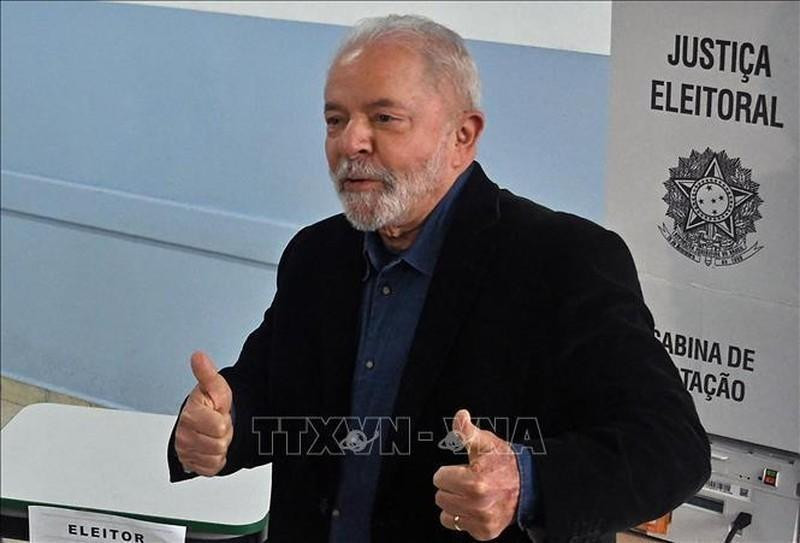As a veteran politician with many imprints in the past two consecutive terms as President of Brazil, Lula da Silva is expected to continue to lead the country to overcome all challenges, promote regional cooperation and integration, and bring Brazil back to an important position throughout the region and the world.
According to the official result announced by Brazil's Supreme Electoral Court (TSE), the leftist candidate Lula da Silva, 77, overcame incumbent President Jair Bolsonaro, to win the second round of the presidential election.
With more than 60.3 million votes in favour (50.88%), Lula da Silva has become the new leader of the most populous country in Latin America for the next four years. This is the third time the founder of the PT has come to power after two successful terms from 2003 to 2010.
With the victory of Lula da Silva, leftist forces returned to power in Brazil after four years, when the country was engulfed in deep socio-political conflicts and its economy plummeted due to the impact of the COVID-19 pandemic. Brazil's president-elect has called on people to move towards peace and solidarity while emphasising the goal of international integration and conservation of the Amazon rainforest.
In his speech after winning, Lula mentioned gender equality and ethnic equality, as well as the urgency of efforts to respond to the food crisis, that has been affecting 33.1 million people in Brazil.
He pledged that the new government would revive the economy, towards the goal of building a peaceful and democratic country, with many development opportunities. The President also pledged to work for the well-being of all 215 million people in Brazil, not just for the voters who supported him.
As the initiator and promoter of numerous social welfare programmes, that have lifted more than 20 million Brazilians out of extreme poverty and lifted the middle class to above 50% of the population for the first time, Lula is expected to bring about changes for a large part of the Brazilians, especially the poor. Political contradictions and the wave of the COVID-19 pandemic have shaken Brazilian society when the previous government failed to come up with effective health and social policies.
The impact of the pandemic has also exacerbated many painful problems in society as the number of unemployed people skyrocketed. The leftist leader said it is unacceptable that a leading agricultural power in the world like Brazil cannot guarantee all people enough food daily.
The election results in favour of Lula da Silva also breathed a new wind into the leftist movement in Latin America because he has been one of the leading flags promoting regional integration.
Bolivian President Luis Arce congratulated “brother Lula, president-elect of Brazil”. He stressed that the victory of the Brazilian leftist leader will strengthen democracy and integration in Latin America while expressing his belief that Lula da Silva will lead the country on the path of peace, progress and social balance.
From Havana, President of Cuba Miguel Díaz-Canel also sent a message to cheer for the victory of veteran politician Lula da Silva, affirming that this great victory is for solidarity, peace and integration in the US. President of Argentina Alberto Fernandez said the victory of the veteran leader of the PT has opened a new phase in the history of Latin America, a period of hope for the future.
The President-elect of Brazil pledged to promote regional cooperation and integration, taking Brazil to its worthy place within the region and the world. With the political experience gained from the previous two tenures, the seasoned politician is expected to overcome the immediate challenges to bring Brazil back to the trajectory of development and prosperity.
















